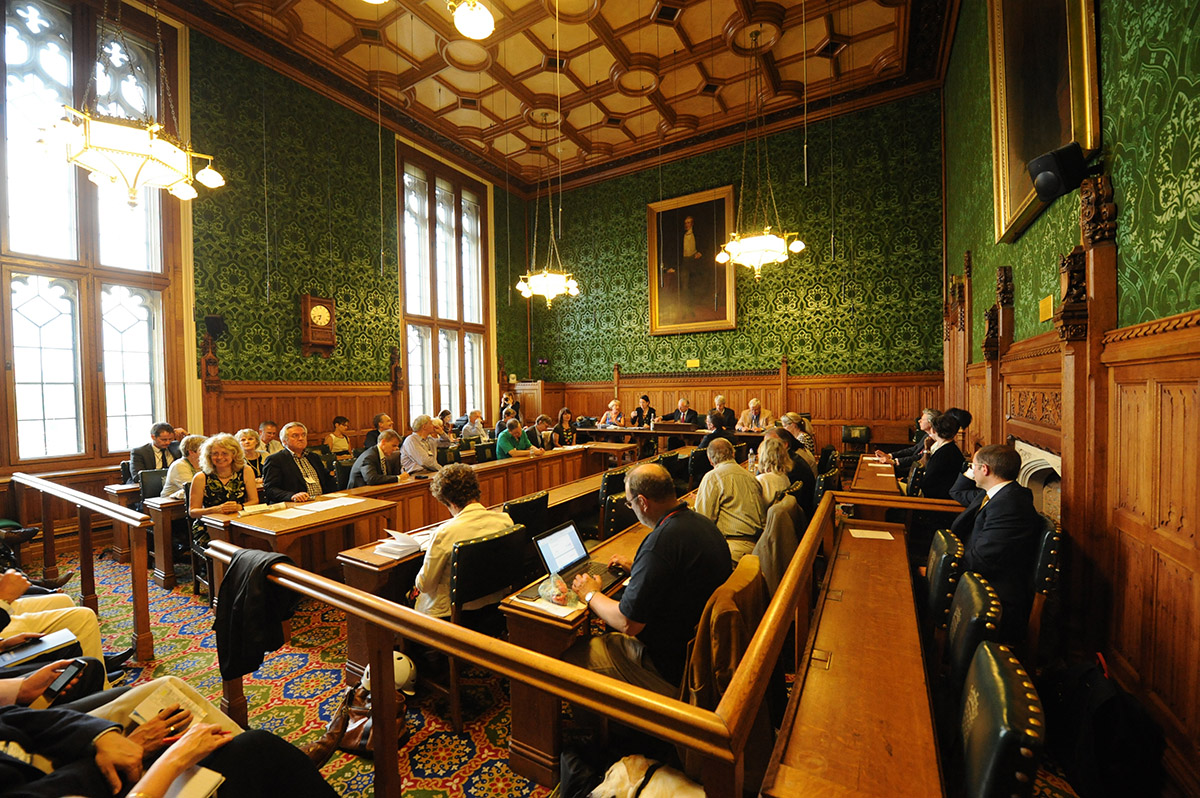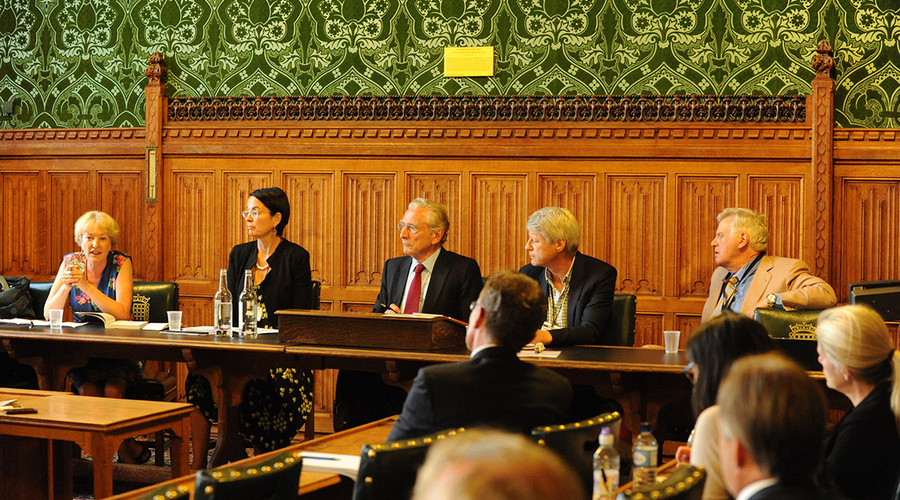Lord Grade, the former Chairman of the BBC, has dismissed the idea of funding the BBC by subscription as "barking."
Speaking at an RTS All Party Parliamentary Group event, “Future of funding for the BBC”, Grade expressed his support for continuing to pay for the corporation by a licence fee.
He said any change in how audiences pay for the BBC would affect the type of programmes the public service broadcaster transmits.
“There is a direct relationship between the source of funding and the programmes that come out at the other end,” said Grade.
To see more pictures from the event, click here
To read the live blog, click here
The esteemed panel: (L-R) Lis Howell, Claire Enders, Lord Fowler, Nick Ross, Lord Grade (Credit: Richard Kendal)
He added: “It’s this security of income that enables the BBC to do what it does.”
Licence-fee funding had enabled the BBC to be “risk averse” for the past 88 years.
However, he said the current licence fee - £145.50 a year – is “too high.”
Grade, a successful controller of BBC One during the 1980s, when he introduced EastEnders, predicted “an incredibly difficult few years” for the BBC as it prepares to negotiate renewal of its Royal Charter during a time of digital disruption.
Last time the Charter was debated the focus was on governance. This time it would be the even more fundamental issue of how we should pay for the BBC, Grade pointed out.
Two other panellists at the event, held in the House of Commons, supported abolishing the licence fee and funding the BBC by subscription.
The former Crimewatch presenter, Nick Ross, said introducing subscription would be the only way of guaranteeing the BBC was not left behind financially as new players such as Netflix invested heavily in content.
“I am passionate about the BBC… but I fear we are driving the BBC to extinction,” opined Ross.


Lord Fowler (standing) chaired the evening which saw four speakers with a wealth of experience in the industry promote four seperate future funding pathways (Credit: Richard Kendal)
Top slicing the licence fee would only further diminish the BBC. Subscription was therefore the answer to the corporation’s financial troubles.
“Subscription is transparent, fair, democratic and universal,” said Ross.
Lis Howell, a former Sky News executive who is now Director of Broadcasting at City University, suggested the iPlayer was undermining the legitimacy of the licence fee.She favoured introducing a model she described as “combination funding” to replace it.
“Tonight you can go home and watch as much BBC content [as you wish] on the iPlayer and watch the news on your phone – all for free,” said Howell.
With no incentive for people to pay the licence fee, she advocated a mix of a lower fee (which would be top sliced) to fund a basic BBC package, alongside a fuller service for those prepared to pay a premium.
“The BBC does not have a monopoly on every innovation in British broadcasting,” said Howell.
The evening’s final panelist, Claire Enders, CEO at Enders Analysis, supported the status quo.


The lively debate, delivered to a packed room, reflected how divisive the issue of BBC funding is (Credit: Richard Kendal)
She explained why the present system works successfully across the entire ecology of British broadcasting and underpins the UK as a content powerhouse and major exporter of intellectual property.
Far from being financially outpaced by its rivals, the recent post-recession economic re-balancing has seen the BBC’s income increase by 1% a year since 2010.
This is despite the licence fee freeze and is due to more households paying the licence fee and larger profits from BBC Worldwide.
The majority of audiences still watch and listen to BBC programmes traditionally; only 3% of BBC viewing is via the iPlayer.
There is also widespread public support for the licence fee, she argued: “Fifty seven per cent of the public thinks it is a good idea.”
As an immigrant (Enders is the daughter of a US diplomat) she stressed she had bought into all the great British institutions.
These included the university system, the NHS - and the BBC.
“Future of funding for the BBC” was produced by Sue Robertson. The chair was the Rt Hon The Lord Fowler. A full report will appear in the July/August edition of Television.
Report by Steve Clarke
To see more pictures from the event, click here.

